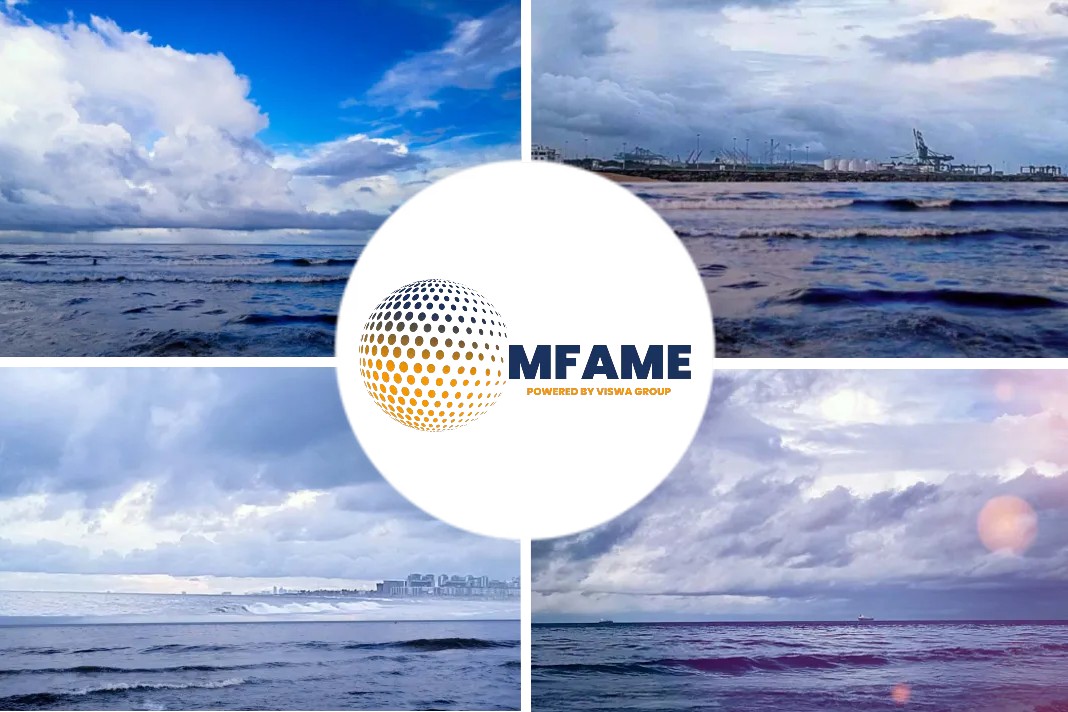A recent news article published in the Wärtsilä website states that Wärtsilä’s LPG Fuel Supply System (LFSS) makes a significant contribution to the company’s decarbonisation strategy.
Low-carbon alternative future fuels
The testing of marine engines with low-carbon alternative future fuels has become a pressing priority as the shipping industry seeks ways to comply with the IMO’s greenhouse gas reduction targets. Wärtsilä has taken a leading position in this, and has future-fuels development as a central pillar in its strategy for decarbonising shipping operations. But it takes more than just an engine capable of burning the fuel for the fuel to become viable. An efficient and well designed, high quality fuel supply system is essential, and here again Wärtsilä has taken the lead.
Liquefied petroleum gas (LPG) is a case in point. LPG is high on the list of promising environmentally sustainable future fuels. Compared to heavy fuel oil (HFO), LPG reduces sulphur oxide (SOx) emissions by 97 percent, nitrous oxide (NOx) emissions by approximately 20 percent, greenhouse gas (CO2) emissions by approximately 24 percent, and particulate matter (PM) emissions by 90 percent.
Full-scale testing of its LPG Fuel Supply System (LFSS)
In 2018, Wärtsilä carried out full-scale testing of its LPG Fuel Supply System (LFSS) with a full-sized 2-stroke marine engine operating with LPG fuel. As the world’s first such testing protocol, it was a breakthrough accomplishment and an outstanding success. Most importantly, the entire testing programme advanced the potential for LPG’s acceptance as a marine fuel. The follow-up from the industry was swift and meaningful.
Exceeding expectations
Immediately following Wärtsilä’s successful testing programme, Oslo-listed BW LPG, a world leader in LPG shipping, and the owner of the world’s largest fleet of Very Large Gas Carrier (VLGC) vessels, placed an order for these Wärtsilä LFSS units to be installed on four ships. This enabled the vessels not only to transport LPG, but to use LPG as fuel as well. The ‘BW Gemini’ became the first VLGC to operate with the Wärtsilä LFSS.
LFSS is a crucial enabler for LPG
The LFSS is a crucial enabler for LPG as a marine fuel. Its development has been based on Wärtsilä’s deep in-house expertise and experience in gas cargo handling and related systems. For the retrofitting of the LFSS into the BW LPG vessels, Wärtsilä has had full system integrator responsibilities. This has involved not only the installation of the LFSS, but also the required ship design modifications, and integration of the control system into the ships’ integrated automation system (IAS). Wärtsilä also acted as the coordinator between the shipyard, the engine manufacturer, and the ships’ owner.
The full Wärtsilä scope included the system engineering, two 930 m3 fuel tanks, the pumps and fuel system, the pump skids, and the cargo handling system.
As with the initial testing protocol, the LFSS has proven to be an extremely successful development. In 2020, BW LPG ordered a further 11 systems, making a total of 15 in all. It was a clear endorsement of their satisfaction with the technology. As Pontus Berg, Executive Vice President, Technical and Operations at BW LPG said at the time: “The strong performance of the Wärtsilä technology has exceeded our expectations, and we have proceeded to equip our fleet with the LFSS as an important step in our commitment towards zero-carbon propulsion.”
Did you subscribe to our daily Newsletter?
It’s Free! Click here to Subscribe
Source: Wartsila

















